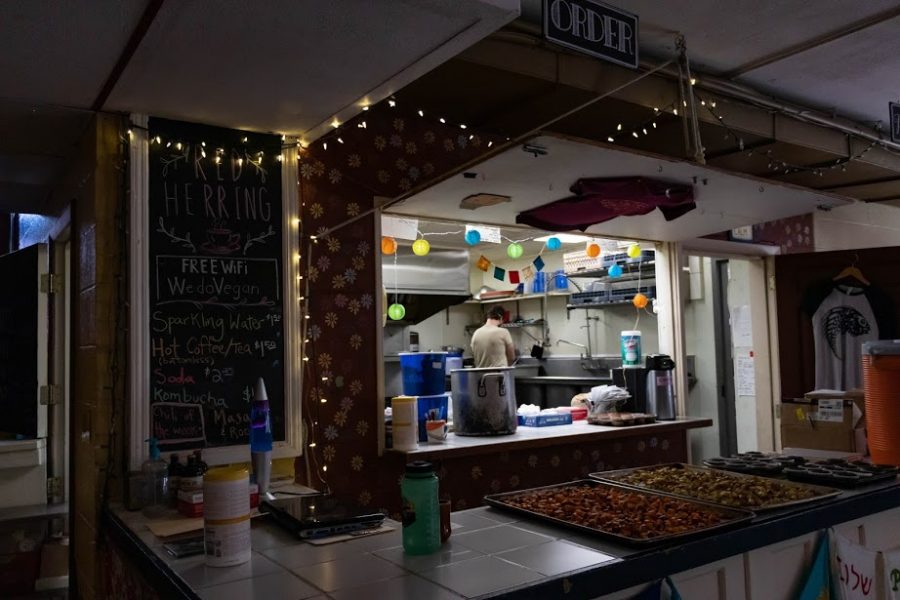Restaurants implement new policies during COVID-19 pandemic
Employees at The Red Herring Restaurant prepare food for takeout customers in the midst of the Covid-19 pandemic on April 13, 2020.
Apr 14, 2020
In the wake of Illinois Gov. J.B. Pritzker’s March 16 closure of all bars and restaurants statewide, many food and beverage businesses stopped operating. Restaurants on campus have found new ways to implement social distancing policies in the fight against COVID-19 while still providing service to the local population.
Josue Saldivar, sophomore in DGS, works at Chipotle. To slow the spread of the virus, Saldivar has gone through training to learn Chipotle’s new sanitation policies. Saldivar must wash his hands at work every 30 minutes instead of every hour. He was also retrained on how to properly clean surfaces.
Chipotle now offers two options to customers: delivery or pick-up. When customers opt for pick-up, they must wait outside the store for a worker to take their order. When the order is ready, it will get brought to them; the customer never goes inside the restaurant.
Business is still going strong, according to Saldivar.
“We still have a lot of orders coming in,” Saldivar said.
Get The Daily Illini in your inbox!
Other restaurants, such as The Red Herring, were able to strategize social distancing policies during the time they had off for spring break.
Holly Curia, manager and chef at The Red Herring, thought about how to keep the staff safely employed while still remaining a sustainable business.
The Red Herring now has a “bulk meal” policy in which customers must order a minimum of $30, and employees only deliver on Tuesdays and Fridays. At this time, this is the only way to order food from the restaurant.
“It limits the amount of exposure our staff has to be going out into the world everyday, and it helps us limit our trips to the grocery store,” Curia said. “We can really consolidate if people are bulk-buying.”
The Red Herring also developed the concept of “pay-it-forward meals,” where customers can buy upwards of 10 meals and choose to either send it to someone they know or donate it.
The Red Herring has partnered with the Cunningham Township program, which provides support for low-income communities in Urbana. The Red Herring now prepares between 60 and 120 meals per week that get sent to Urbana households.
“For three weeks in a row, we have essentially sold out of our capacity,” Curia said.
At this point, Curia has no plans to transition back to normal policies.
“We are going to continue to follow the recommendations of the Health Department,” Curia said.
Brandon Meline, director of maternal and child health at the Champaign-Urbana Public Health District, recommends customers use the curbside service option at restaurants.
Meline recommends employees wash hands frequently and distance from one another as much as possible in kitchens.
Before eating, Meline says it’s important to wash your hands and to not touch your eyes or nose.
“Even if there’s potential infectious viral particles on food itself … the risk of transmission by actually consuming food is pretty minimal. It’s going to go down into your digestive tract and be destroyed,” Meline said.






